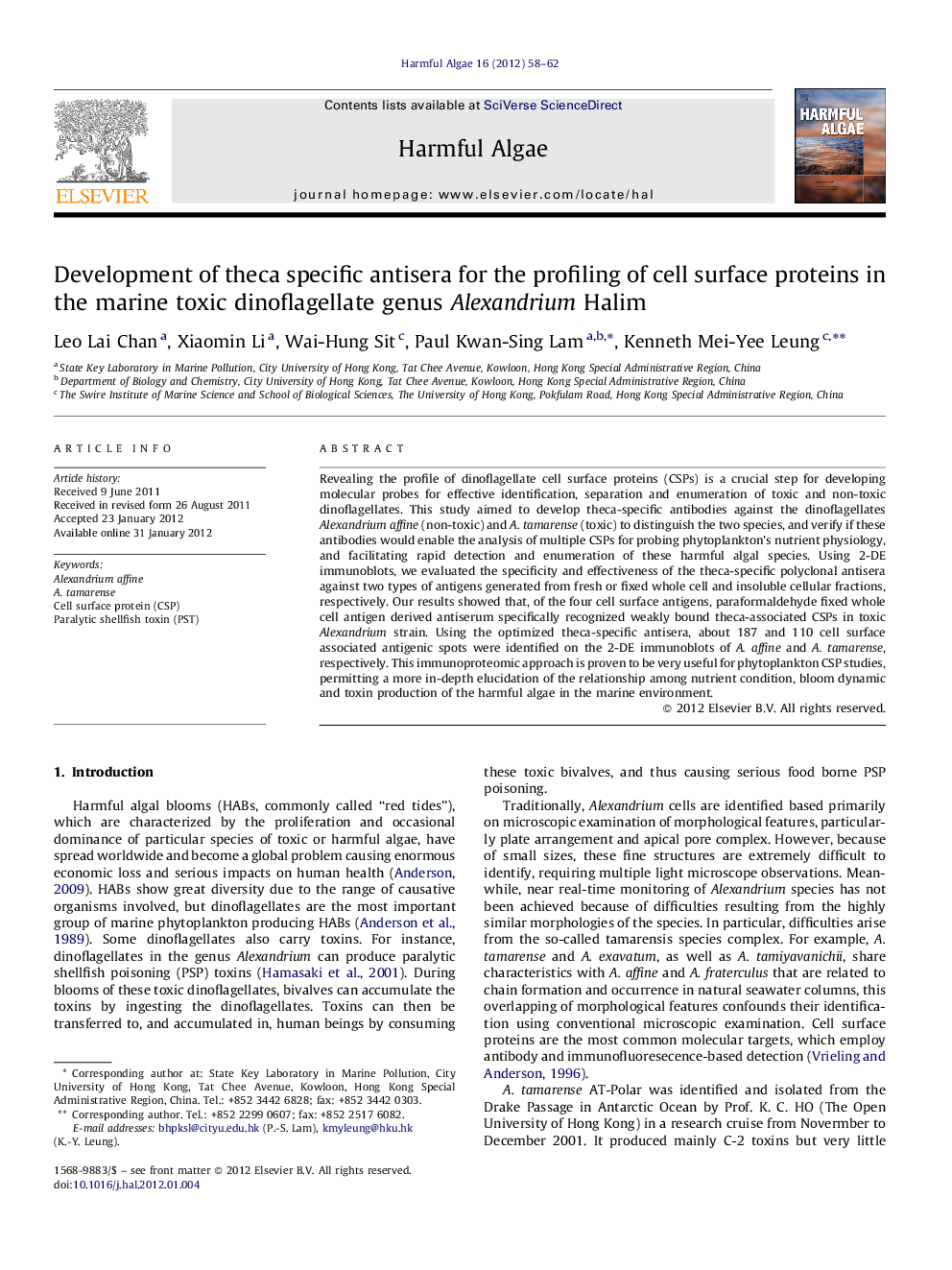| کد مقاله | کد نشریه | سال انتشار | مقاله انگلیسی | نسخه تمام متن |
|---|---|---|---|---|
| 4545616 | 1626954 | 2012 | 5 صفحه PDF | دانلود رایگان |

Revealing the profile of dinoflagellate cell surface proteins (CSPs) is a crucial step for developing molecular probes for effective identification, separation and enumeration of toxic and non-toxic dinoflagellates. This study aimed to develop theca-specific antibodies against the dinoflagellates Alexandrium affine (non-toxic) and A. tamarense (toxic) to distinguish the two species, and verify if these antibodies would enable the analysis of multiple CSPs for probing phytoplankton's nutrient physiology, and facilitating rapid detection and enumeration of these harmful algal species. Using 2-DE immunoblots, we evaluated the specificity and effectiveness of the theca-specific polyclonal antisera against two types of antigens generated from fresh or fixed whole cell and insoluble cellular fractions, respectively. Our results showed that, of the four cell surface antigens, paraformaldehyde fixed whole cell antigen derived antiserum specifically recognized weakly bound theca-associated CSPs in toxic Alexandrium strain. Using the optimized theca-specific antisera, about 187 and 110 cell surface associated antigenic spots were identified on the 2-DE immunoblots of A. affine and A. tamarense, respectively. This immunoproteomic approach is proven to be very useful for phytoplankton CSP studies, permitting a more in-depth elucidation of the relationship among nutrient condition, bloom dynamic and toxin production of the harmful algae in the marine environment.
► We developed theca-specific antibodies against the dinoflagellate Alexandrium affine (non-toxic) and A. tamarense (toxic).
► 187 and 110 CSPs of A. affine and A. tamarense were identified with the antisera.
► A more in-depth elucidation of the relationship among nutrient condition, bloom dynamic and toxin production of the harmful algae.
Journal: Harmful Algae - Volume 16, April 2012, Pages 58–62